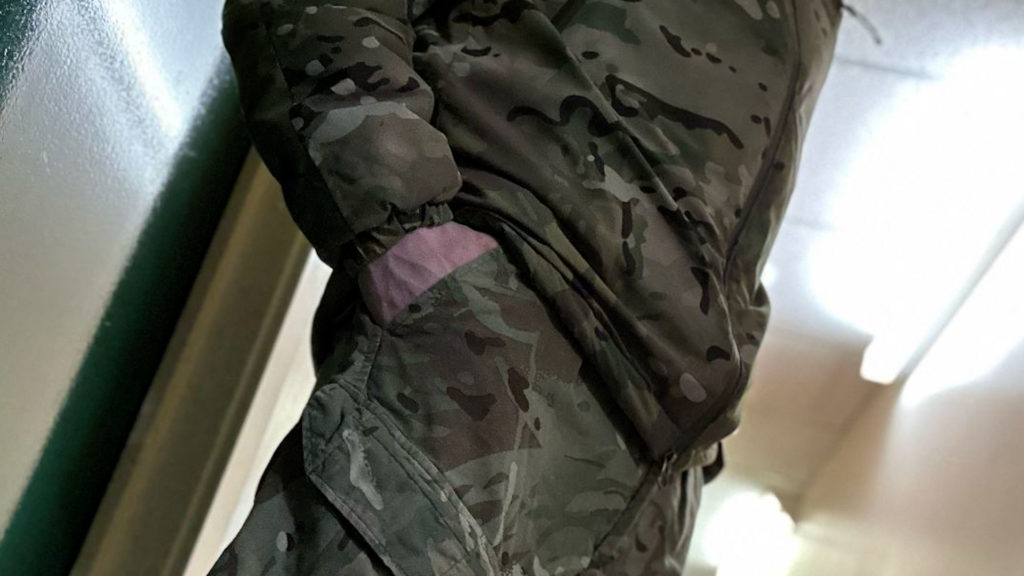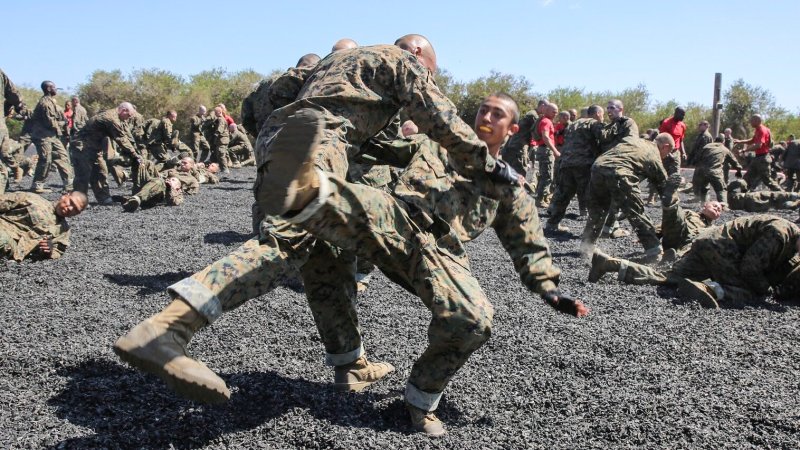The U.S. military maintains strict rules that might surprise civilians – from mustache measurements to dueling bans. These ten regulations reveal how deeply military discipline shapes daily life, controlling everything from where you put your hands to political speech. While some rules rarely see enforcement, they remain active parts of military law, carrying serious consequences for violations.
10. Trimming The ‘Stache

A well-groomed mustache can be a point of pride for many, but in the military, it comes with strict guidelines. The Air Force has specific rules about mustache length and style. For instance, no part of the mustache can extend below the upper lip line, and it must not exceed a quarter-inch beyond the corners of the mouth. This means that while you can sport a mustache, it must be neat and compliant with military grooming standards.
9. Adultery

In the military, adultery is not just a personal issue; it can lead to serious legal consequences. Known as extramarital sexual conduct, being caught in an affair can result in a range of penalties, including a reduction in rank, loss of pay, or even a dishonorable discharge. The military takes these matters seriously, as they can reflect poorly on the institution as a whole.
8. Get Off The Grass

This peculiar rule is less about discipline and more about maintaining the aesthetics of military grounds. Troops are often instructed to avoid walking on the grass to prevent it from becoming worn and muddy. Symbolically, stepping off the designated path can suggest a willingness to take shortcuts, which is not something military leaders want to see in their ranks.
7. Getting Inked

Tattoos have become increasingly popular, but the military has strict policies regarding them. While tattoos are not outright banned, they must be placed in acceptable areas. For example, tattoos cannot be visible on the hands, face, or neck, and offensive designs are strictly prohibited. This ensures that service members maintain a professional appearance while still allowing for personal expression.
6. Jumping Into Water

Jumping from U.S. military vessels – whether in port or at sea – carries severe penalties. The crime brings up to two years in prison, dishonorable discharge, and loss of all pay. This applies to any boat under military control, not just official Navy ships. Only sanctioned “swim calls” exempt sailors from punishment. That or legitimate suicide attempts, but trying to prove that invites an entirely new host of problems in the process.
5. Criticizing The Government

Military personnel are expected to maintain political neutrality, which includes refraining from criticizing the government. This rule extends to not participating in political rallies or displaying political signs while in uniform. The military believes service members should focus on their duties rather than engage in political discourse.
4. Straggling

Straggling, or getting separated from your unit, is a serious offense in the military. During wartime, it’s obvious why this is an offense – it can disrupt operations and put comrades at risk. However, during peacetime, it remains something you could be punished for. If caught straggling, service members can face severe consequences, including a permanent record of the offense, reduced pay, or confinement. The military emphasizes the importance of staying with your unit for safety and operational integrity. In other words: keep up.
3. Careful Where You Put Your Hands

Putting your hands in your pockets was once considered a major offense in the Navy. This rule has since been relaxed, allowing sailors to keep their hands in their pockets when off duty, as long as it doesn’t interfere with safety or saluting. However, the perception of laziness associated with this action still lingers in military culture.
2. Cursing

The military’s Uniform Code Article 134 acted as a catch-all rule from 1951 to 2019, listing 55 specific violations – including “indecent language.” This technically made everyday military cursing a criminal offense. The code defined indecent speech as language that “shocks moral sense” through vulgarity or by provoking lustful thoughts. While troops regularly cursed, commanders rarely enforced this rule unless tied to more serious misconduct.
1. Dueling

While dueling may seem like a relic of the past, it is still technically against military law. Although there have been no recorded disciplinary actions for dueling in recent years, it remains classified under endangerment offenses. Historically, many prominent figures, including presidents, engaged in duels to settle disputes, but today, the consequences could include confinement and loss of pay.




























